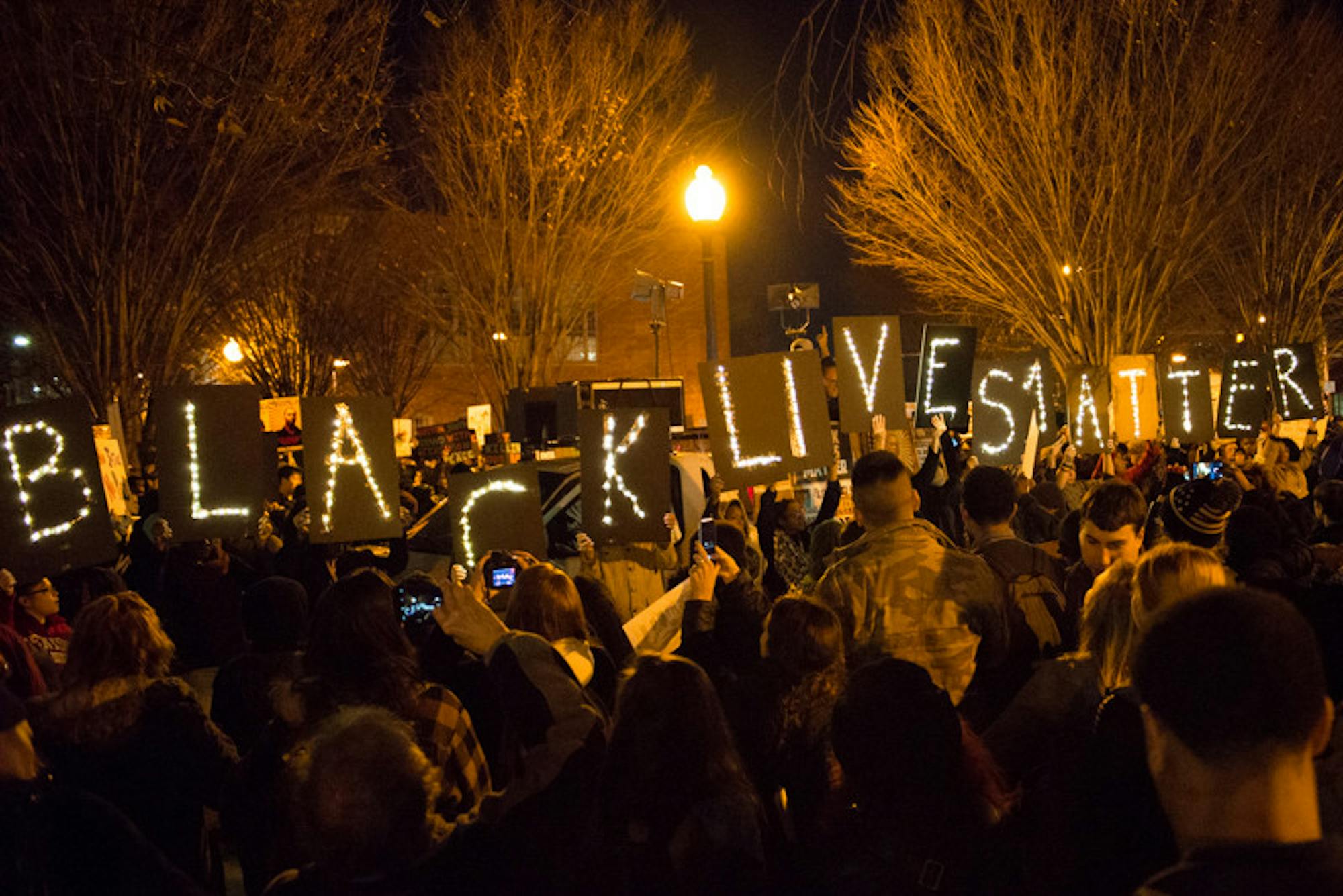“There’s inevitably going to be some negative reaction, and it’ll make for good TV,” cautioned President Obama in his statement on the Ferguson grand jury’s decision. The mainstream media immediately confirmed Obama’s premonition by streaming images of "riots" in which people are destroying store fronts and starting fires. Hours before the announcement, media conglomerates like CNN had large vans and cameras staked out in Ferguson, in anticipation of the local reaction to the grand jury’s decision to not indict Darren Wilson in the shooting of Michael Brown. These images coming across Americans' televisions are a sensationalized version of what is really happening; the majority of people in Ferguson and around the country are protesting peacefully.
Narrowing media coverage to the violent protesting of a small subset of the population obscures the true nature of the peaceful protests and acts of civil disobedience by the majority. Headlines polarize protesting as violent and chaotic by using words such as “thugs” and “Ferguson burning,” and thus emphasize a stereotype of black people protesting violently and senselessly. The racism inherent in America's media coverage reveals itself most during incidents of violence, where black protesters become "rioters," and white rioting is "a rowdy crowd."This was reaffirmed in CNN's recent depiction of an incident at a New Hampshire pumpkin festival, in which drunk white college students threw broken glass, overturned a car and started fires on the road, injuring 30 bystanders. While these events are not comparable, the media's description of white violence as "unruly behavior" reiterates media complacency in perpetuating racist stereotypes.
Media sensationalism in the coverage of Ferguson has drastically shaped the discourse of the Brown shooting and how American society perceives the grand jury’s decision. Some news channels and pundits have attacked Brown's reputation, emphasizing things that trigger fear in white audiences, such as smoking pot and shoplifting. This framing is common, as if any of these accusations could validate Brown's death. These infractions, however, pale when discussing the legal system’s frequent mishandling of cases in which young black men fall victim to police violence. Attempting to tarnish Brown's reputation does not change the facts of the situation, and only serves as a distraction to society's deeply entrenched flaws.
As a media organization, we understand well how skewed coverage can shift the way events are perceived and understood. We understand the power of the media to racialize and criminalize a situation, and we call on the mainstream media to shift toward responsible discussion of the events in Ferguson and the implications of the grand jury’s decision on the legal processing of similar cases. Instead of sensationalizing and propagating biases the media must provide fair and accurate coverage of protests across the country and investigations into the case. This will only lead to a more nuanced and accurate conversation around the events in Ferguson and institutionalized racism in general, which is one small but important step toward awareness and change.
Ferguson is more than just good TV

11/25/14 – Medford/Somerville, MA – Protesters hold up signs during the Indict America rally in Dudley Square on November 25th, 2014. (Nicholas Pfosi / The Tufts Daily)





